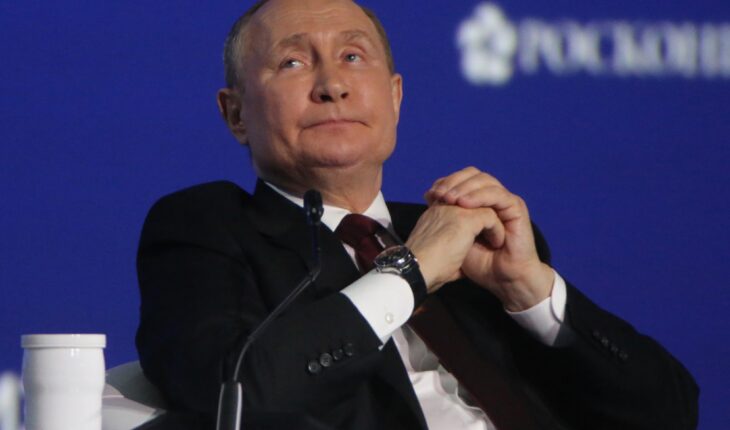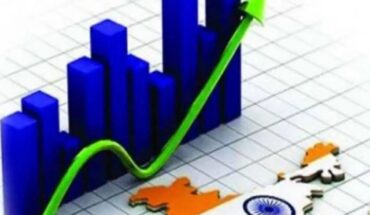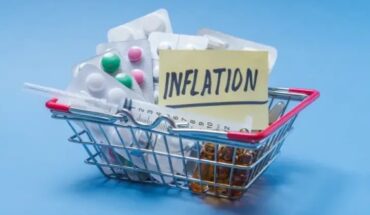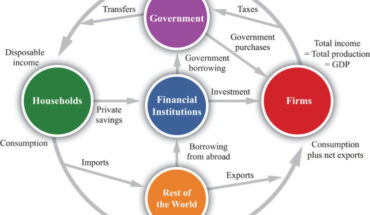
Few weeks back, when a dispute emerged between the Governor of the Central Bank of Russia and President Putin’s economic advisor,it was widely believed that the ongoing conflict between Russia and Ukraine, which has lasted for more than 500 days, was beginning to have an impact. The main reason for the dispute between them was the decision by the Central Bank’s Governor to increase the bank’s interest rate by 350 basis points in a single day. Just a few weeks ago, there had already been an increase of 100 basis points in interest rates by the Central Bank. As a result of these increases, the interest rate in Russia has risen from 8.5% to 12% at present. It’s worth noting that in the past ten years, there hasn’t been such a significant increase in interest rates in India. Therefore, the sudden policy changes in recent days have brought Russia’s economic situation into discussions, although there is no other substantial evidence or proof available to support this. Given the stature of President Putin, it does not seem that Russia will go into a period of economic uncertainty so soon, although the US and its NATO friends, various countries of the European Union, have imposed many economic sanctions on Russia, specially the ban on the purchase of gas and crude oil from Russia.
The main purpose of increasing interest rates, according to the governor, is to control the ever-increasing inflation in Russia these days.It’s known that the current inflation rate in Russia is around 7.6%, and this rate doesn’t appear to be exceptionally high, similar to what some major developed countries experienced after the pandemic. In this context, it is also necessary to clarify that the policy of tolerance on the rate of inflation in Russia remains up to 4 percent and necessary steps are taken when it goes above it. Now it is also necessary to look at why this inflation rate is increasing? For the last one and a half years, almost all the factories and industries of Russia have been producing only to meet all the needs of the Russian army,causing shortages or reduced availability of various goods in society, leading to an increase in their prices. It’s a rather simplistic analysis to assume that due to a shortage of foreign currency reserves, Russia is unable to import essential goods. Foreign exchange reserves figures show that Russia’s position is much stronger. When the war with Ukraine started, Russia had a reserve of 640 billion US dollars, which is equivalent to about 586 billion dollars today. The same reserve is also in India today. It is also important to mention that Russia’s lowest foreign exchange reserves in the last ten years (350 billion US dollars) were in the year 2016.
No one can disagree that when inflation levels are consistently rising in the domestic market, the Central Bank must take steps to control financial liquidity, and often, the only solution is an increase in interest rates. So, why did President Putin’s economic advisor criticize the Governor of the Central Bank of Russia for raising interest rates, claiming it’s the wrong economic policy? Analyzing this perspective reveals that the Russian currency, the ruble, has been experiencing significant depreciation these days . Two years back, in August, the ruble was equivalent to 70 American dollars, which then increased to 136 American dollars after the start of the conflict with Ukraine. However, it later recovered to around 54 American dollars due to considerable resilience. But over the past 8 months of 2023, the ruble has again faced a depreciation of around 25 to 30 percent, bringing it down to approximately 100 American dollars, which is a cause for concern. It’s important to mention that during the initial days of the conflict with Ukraine, there was a rapid withdrawal of investments from Russia, leading to a sudden increase in demand for dollars and weakening the ruble to 136 levels. Now, the ruble is weakening against the dollar again, indicating that the sudden and continuous increases in interest is responsible for it. This situation has led to disagreements between President Putin’s chief economic advisor and the Governor of the Central Bank.
Russia’s economy is mainly identified on the global stage as an exporter of gas, crude oil, and various food products. India has been buying oil from Russia since April 2022 and it is increasing rapidly. Till March 2023, India had purchased an average of 1.02 million barrels of crude oil from Russia. Russia has now become the top country supplying oil to India, which was at number 10 till last year.After the Ukraine conflict, Russia’s economic growth rate was mostly negative in the year 2022, but in 2023, the economy has shown a significant rebound, with an average growth rate of over four percent. Amidst all this, President Putin, who is leading his country with national pride in the Ukraine conflict, must be grappling with economic questions, including maintaining economic stability in the country and consistently providing financial support to the ongoing conflict. In the midst of these considerations, when inflation suddenly rises over the past few months, Putin is likely aiming to control it, but certainly he wouldn’t want it to have certain effects that could harm the economic interests of the common Russian citizens. This might be the reason why the increase in interest rates by the bank was openly criticized by Putin’s chief economic advisor.It’s important to mention that Russia’s population is consistently declining and is roughly equivalent to one-tenth of India’s total population. The declining population also leads to a shortage of skilled workers. Observations reveal that employees are working in shifts of 3-3, indicating a shortage of skilled labor. Therefore, for Putin, it has become crucial to bring certainty and stability to the country’s internal economic matters.
After Russia attacked Ukraine in February 2022, western countries not only imposed strict sanctions but also asked other countries not to do business with Russia. Products that have been banned include Russian oil, gas, vodka and tobacco, etc. But Western countries have shied away from imposing sanctions on Russia’s nuclear products because they are needed to generate electricity. According to the US Energy Information Administration, Russia sent 12 percent of its total uranium exports to the US last year. In 2022, Europe will get 17 percent of Russia’s uranium. Russia’s isolation from the West has increased due to the imposition of new and tougher economic sanctions. Therefore, pursuing closer relations with Africa is an intrinsic part of this vision. Russian Foreign Minister Sergey Lavrov also signaled the same geopolitical stance during several of his visits to Africa amid the ongoing war with Ukraine. Russia’s growing trade relations with African countries have created new avenues and, in a way, have helped Russia’s economy.Undoubtedly,the US and other developed countries have not been able to intimidate Russia very much on the economic front. Russia is now entering a new era of international diplomacy with India, China and many other countries and is doing business transactions of crude oil, gas etc. with the domestic currencies of these countries.
Dr P S Vohra is Writer, columnist and financial thinker, View are personal






